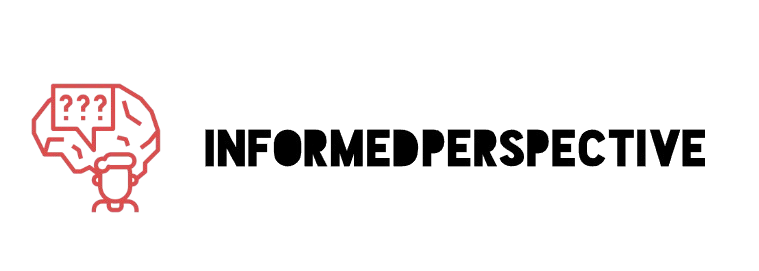The Best Fluffy Pancakes recipe you will fall in love with. Full of tips and tricks to help you make the best pancakes.

Political Science and Government: Unlocking the Secrets of Power and Society
Political science and government might sound like a snooze-fest to some, but it’s the secret sauce that keeps society from turning into a wild west showdown. Ever wondered why your favorite politician seems more like a soap opera star than a statesman? That’s political science at work, blending drama, strategy, and a sprinkle of chaos to shape the world around us.
From the intricacies of policy-making to the art of persuasion, understanding how governments operate can turn anyone into a savvy citizen. It’s not just about voting; it’s about knowing the game and playing it well. So buckle up as we dive into the fascinating world of political science and government, where knowledge isn’t just power—it’s the ultimate cheat code for navigating life’s political landscape.
Overview Of Political Science And Government
Political science examines the theory and practice of politics and governance. It involves analyzing political systems, institutions, and behavior to understand how power is distributed and exercised. This field encompasses various aspects such as political theory, comparative politics, international relations, public administration, and policy analysis.
Political theory focuses on the ideas and philosophies that underpin political systems. It explores concepts like justice, freedom, and democracy, providing frameworks to critique existing systems. Comparative politics studies different political systems around the world, offering insights into the strengths and weaknesses of diverse governance models.
International relations looks at interactions between countries, addressing issues like conflict, diplomacy, and trade. This area investigates how global politics shape national policies and influence international cooperation. Specific theories within international relations, such as realism and liberalism, help to explain the motives behind state behavior.
Public administration pertains to the management of government agencies and the implementation of public policies. Effective public administration ensures that services reach citizens efficiently and contributes to overall governance. Policy analysis evaluates existing and proposed policies, guiding decisions to promote societal well-being.
Political science contributes to empowered citizenship by equipping individuals with the tools to engage in dialogue and action. Knowledge of political systems facilitates informed participation in civic life, fostering active democracy. Understanding political dynamics encourages critical thinking about issues like social justice, economic inequality, and human rights.
Political science and government encompass a multifaceted analysis of power, authority, and society. Each subfield plays a vital role in articulating how citizens interact with their governments and contribute to the development of a just society.
Key Concepts In Political Science

Political science encompasses essential theories and models that shape governance and political behavior. Understanding these concepts assists in grasping the complexities of political dynamics globally.
Political Theories
Political theories form the foundation of political science. They examine concepts like justice, rights, and democracy. Scholars explore these theories to understand how they influence political ideologies and movements. For example, liberalism emphasizes individual freedoms and rights, while socialism focuses on social equity and collective ownership. Each theory offers insights into power dynamics and governance structures, guiding political discourse and action. Furthermore, political philosophy questions the ethical implications of governance, questioning the moral obligations of citizens and leaders alike.
Governance Models
Governance models illustrate various ways societies organize power and authority. Different countries adopt distinct frameworks based on cultural, historical, and social contexts. Democratic models prioritize electoral participation and civil rights, fostering citizen engagement. Authoritarian systems centralize power, often limiting freedoms to maintain control. Additionally, hybrid models combine elements of democracy and authoritarianism, blurring the lines between governance styles. Each model highlights the diversity of political practices, impacting citizens’ lives globally. Understanding these models aids individuals in analyzing their political environment and advocating for effective governance.
The Role Of Political Institutions
Political institutions shape the framework of governance, influencing the political landscape of societies. Their functions cover various critical aspects, including legislative, executive, and judicial processes.
Legislative Bodies
Legislative bodies enact laws and represent citizens’ interests. They consist of elected officials responsible for creating, amending, and repealing legislation. Various structures exist, such as unicameral and bicameral systems, reflecting different governance traditions. Each structure impacts how legislation is formulated and passed. For instance, in bicameral systems like the U.S. Congress, two chambers; the House of Representatives and the Senate, deliberate on laws. These bodies often balance diverse viewpoints, fostering comprehensive discussions before approving legislation.
Executive Authority
Executive authority implements laws and oversees government operations. Heads of state or government, including presidents or prime ministers, direct these institutions. Their responsibilities include enforcing laws, managing foreign relations, and administering government agencies. The balance of power varies significantly by system. In presidential systems, like the U.S., the president holds considerable power, while in parliamentary systems, such as the UK, the prime minister operates with legislative support. This distinction influences policy direction and accountability in governance.
Judicial Systems
Judicial systems interpret laws and adjudicate disputes. They uphold justice through courts that ensure legal rights are protected. Various court levels exist, ranging from local courts to supreme courts, each serving distinct functions. Within these systems, judges play a crucial role in maintaining the rule of law. They interpret legislation, resolve conflicts, and address constitutional issues. The independence of the judiciary is vital for ensuring fairness and impartiality, enabling citizens to challenge government actions effectively.
Current Trends In Political Science And Government
Political science and government are evolving rapidly, influenced by various factors that shape societies and political landscapes.
Impact Of Technology
Technology significantly reshapes political engagement and governance. Digital platforms facilitate real-time communication, enabling citizens to connect with representatives. Social media amplifies political discourse, allowing diverse voices to participate in discussions. Data analytics enhances campaign strategies, helping to target messages efficiently. Tools like AI for presentation further support political messaging by making complex data and policies more visually compelling. Online voting systems and e-governance initiatives streamline citizen access to services, improving administrative efficiency. Political science scholars examine these transformations, analyzing implications for democracy and representation.
Globalization And Politics
Globalization influences political dynamics by connecting countries and cultures. Economic interdependence creates shared challenges, necessitating collaborative governance. International organizations play a crucial role in addressing issues like climate change and trade, promoting multilateral agreements. Political scientists explore how globalization affects national sovereignty and local governance structures. As borders blur, local movements often emerge, advocating for localized solutions. Understanding these trends helps identify how political entities adapt to a more interconnected world.
Challenges Facing Political Science
Political science encounters several challenges that affect its relevance and effectiveness in contemporary society. Understanding these challenges fosters a deeper appreciation of the field.
Political Polarization
Political polarization poses significant obstacles within political science. Scholars observe a growing divide among political ideologies, leading to entrenched positions and reduced opportunities for compromise. This polarization complicates the analysis of public opinion and policy formulation, as extreme views dominate political discourse. Researchers often struggle to engage diverse perspectives, limiting the effectiveness of collaborative governance. Moreover, the media landscape amplifies these divisions, further hindering informed dialogue on critical issues. As interactions become increasingly adversarial, understanding political polarization is essential for developing strategies that promote unity and effective governance.
Issues Of Representation
Issues of representation in political science require careful examination. Many populations experience underrepresentation in political institutions, leading to imbalanced power dynamics and inequitable policy outcomes. Marginalized groups often face barriers in accessing political representation, which diminishes their influence on governance. Political scientists analyze electoral systems and their impact on representation, noting that certain structures disproportionately favor particular groups. Furthermore, inclusive policy-making relies on diverse voices, underscoring the need for reforms that ensure equitable representation of all citizens. Addressing these challenges contributes to strengthening democracy and enhancing the legitimacy of government institutions.
Conclusion
Understanding political science and government is essential for fostering an informed citizenry. It’s not just about knowing how to vote but engaging in meaningful dialogue and advocating for change. By grasping the complexities of political systems individuals can better navigate the challenges of modern governance.
The evolving landscape of politics demands active participation and critical thinking. As citizens become more aware of their political environment they can contribute to a more equitable and just society. With the right tools and knowledge they can challenge injustices and promote democratic values effectively.
